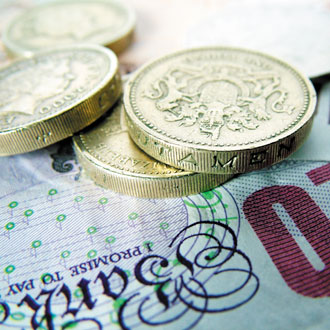NHS England hails 8% increase in general practice funding

NHS England has hailed its effort to boost funding going towards general practice since it was founded.
Since taking over NHS commissioning in 2013, NHS England said that there had been an 8% increase to investment, and a cash increase over five years of almost a quarter.
Its Five Year Forward View delivery plan, published today, said that ‘in the years prior to the creation of NHS England, investment in general practice was falling in real terms’, but that ‘each year since the establishment of NHS England we have made sure it has gone up, with real terms funding increasing by 8% over the past three years’.
And NHS England primary care director Dr Arvind Madan told Pulse: ‘Since NHS England was born, we are up 8% on investment in general practice. The 2016/17 outturn is £500m more than 15/16 and £1bn more than 2014/15. That is a 14% real terms increase in investment and a 24% cash increase over five years.
‘The global sum has seen a big shift in the last year of 5.9%. There is clarity over the £171m from CCGs and some changes in the contract around the CQC being reimbursed and indemnity clarity, sickness reimbursement and payments for a number of other areas. And a shift in the AUA funding. The funding is clearer.’
NHS England also highlighted among achievements its rescue efforts for vulnerable practices, which comprised of the £10m ‘new deal’ package followed by another £40 Resilience Fund in last year’s GP Forward View.
This comes as it has simultaneously been criticised by the RCGP and the GPC for the funding not reaching practices fast enough, before they closed, and by local leaders for ‘rushing’ funding out to meet targets.
NHS England said its ‘key primary care achievements so far’ since the Five Year Forward View was published in 2014 included:
- 17 million people now able to access GP appointments at evenings and weekends.
- Increased investment in general practice in 2016/17 – with estimated outturn of at least an additional £500 million more than 2015/16 – and an additional £1 billion more than 2014/15. Real terms funding is also up 8% over the past three years since NHS England was established;
- 491 clinical pharmacists working in and across 658 practices, with co-funding from NHS England;
- Significant additional investment in GP premises and technology, with over 800 new schemes identified during 2016-2019;
- Numbers entering GP training are up 10% since 2015.
- Figures show over 1,200 practices have already benefitted from £21 million of resilience and support funding.
It also listed ‘key improvements to come’ as:
- By March 2018, at least 40%, of the country will benefit from extended access to GP appointments at evenings and weekends but with an aim of 50%. By March 2019 this will extend to 100% of the country.
- Increase pharmacists in general practice to over 900 by March 2018 and over 1300 by March 2019.
- 800 mental health therapists in general practice by March 2018 rising to over 1500 by March 2019.
- 800 infrastructure projects are identified for Estates and Technology Transformation Fund investment in the coming years.
Dr Madan said: ‘If we look back to where general practice was a year ago, I think we have made significant progress but the journey is far from over. The measures we are setting out today will continue to build momentum behind the wider transformation of primary care and help us deliver the high quality, flexible health service that is needed in the face of ever-rising patient demand.’
Pulse July survey
Take our July 2025 survey to potentially win £1.000 worth of tokens











